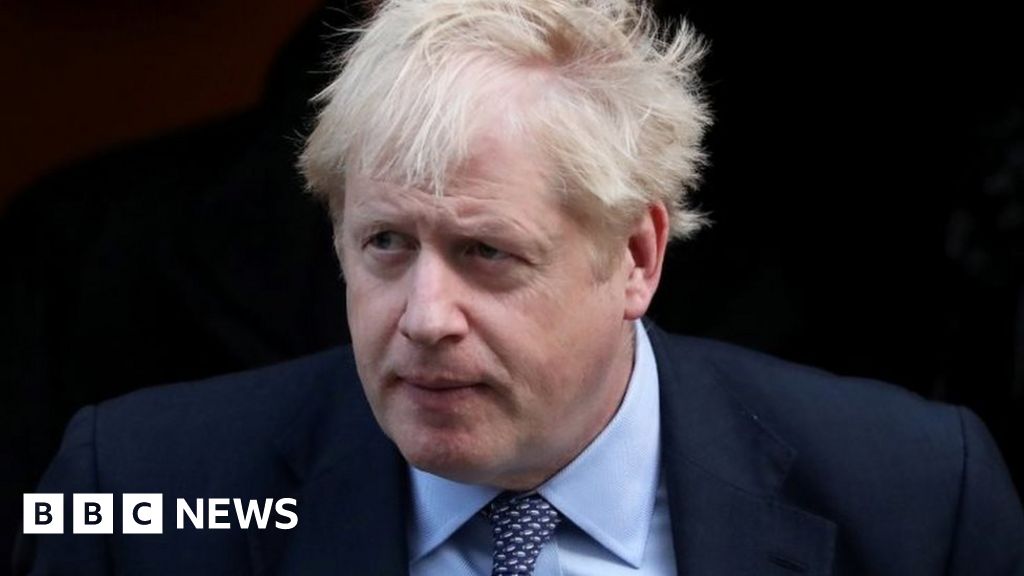
MPs are due to vote later on Boris Johnson's call to have an election on 12 December.
The prime minister says he will restart moves to get his Brexit deal bill into law if the motion is passed.
But he looks unlikely to get the support of the two-thirds of MPs he needs by law to agree to an election, with opposition parties against it.
The UK is due to leave the EU on Thursday, but the bloc is considering an extension to that date.
They agreed to delay Brexit in principle last week, but EU ambassadors are meeting again this morning, with BBC Brussels reporter Adam Fleming saying there were "high hopes" of a final decision.
A draft text of an agreement for the 27 ambassadors includes multiple possible dates for Brexit - 30 November, 31 December or 31 January - and an option for the UK to leave earlier if and when a deal is signed off.
There will also be a commitment that the Withdrawal Agreement on the UK's exit from the EU cannot be renegotiated in future.
Adam Fleming said if the ambassadors and the UK agreed, the extension process could completed in writing without the leaders of each of the EU states needing to be present.
Vote for a vote
In Westminster, MPs are due to vote on the prime minister's election call after 17:00 GMT.
Labour leader Jeremy Corbyn said his party is not prepared to support it until a no-deal Brexit is ruled out, with his party's MPs expected to abstain in the vote.
The SNP has also said it will block the government's election attempt.
But the party has joined forces with the Liberal Democrats to push for an election on 9 December - provided the EU grants a Brexit extension until 31 January.
They have proposed a bill which would tweak the Fixed-term Parliaments Act 2011 - the law which sets the time-frame for elections - and enable a poll to take place with only a simple majority of MPs voting for it, rather than two-thirds of MPs.
Lib Dem leader Jo Swinson said she wanted to stop Mr Johnson from "ramming through his Brexit bill".
She told BBC Radio 4's Today programme setting the date in law would also remove any "wriggle room" the PM had around his own proposals.
Ms Swinson said she had written to the prime minister but was yet to get a response.
Asked about the Lib Dem/SNP proposal, Education Secretary Gavin Williamson said the government would "always look at every single option".
But he told BBC Breakfast: "The best way is to vote for the motion tonight. This Parliament is totally broken. Let the people decide the next step forward."
Labour's Lucy Powell also criticised the SNP/Lib Dem plan.
"What we've seen from the Liberal Democrats and the SNP is trying to shape the terms of that election in a way that would favour them the most. It's pure playing of politics," she told BBC Radio 4's Westminster Hour.
MPs have already twice rejected a call from the PM to hold a general election.
Mr Johnson has sent a letter to the EU requesting a Brexit delay until 31 January. He was compelled to do so by a law passed by MPs - known as the Benn Act.
Before this, the prime minister repeatedly insisted the UK would leave the EU on 31 October, with or without a deal.
The decision by the Lib Dems and SNP is basically to abandon a "People's Vote" in this Parliament and to campaign now for a general election.
That is the only way, they believe, that you can change the maths in Parliament to make a People's Vote more likely.
It points to the break-up of the so-called Rebel Alliance, which has hung together through thick and thin and has stymied Mr Johnson.
The Lib Dems and the SNP appear to be moving in on one direction - and Labour and the Greens in the other.
https://www.bbc.com/news/uk-politics-50199689
2019-10-28 09:39:01Z
52780420866456
Tidak ada komentar:
Posting Komentar